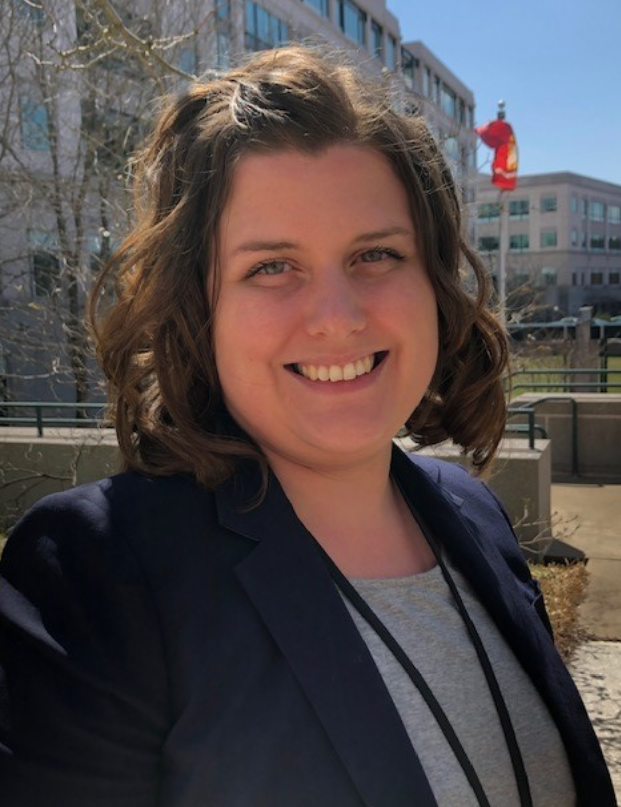COVID-19 Federal Policy Work Group: Artificial Intelligence & Machine Learning (Members Only)
Our COVID-19 Federal Policy Work Group series to help craft a report with a set of recommendations to fully leverage health IT and digital health to fight COVID-19 and future public health challenges. This meeting will focused on artificial intelligence and machine learning.
Our guest speaker was Eileen Koski, Program Director, Health Data and Insights, Center for Computational Health, IBM Research who will discuss how IBM has deployed AI in the fight against COVID-19.
WEBINAR: COVID-19 and Beyond: Telepsychiatry Best Practices and Regulatory Priorities
Now is the time for telebehavioral health. The COVID-19 global healthcare crisis has meant a remarkable evolution for the already rapidly changing telehealth industry.
In recent weeks, every state, county and community across the United States has experienced a greater prevalence of mental health conditions. As the need for mental health rises, the push for virtualizing interactions is exploding, resulting in a major boom in telebehavioral health.
WEBINAR: Fitbit Executive Talks About Population Health Initiative During COVID-19 Pandemic
COVID-19 has forced people around the world to make drastic changes to their lives and routines. In the midst of these changes, digital health companies find themselves in a unique position to help people stay active, eat nutritious foods, sleep well, and manage stress during these challenging times. They are also partnering with public health and research partners in order to leverage behavior and biometric data to help detect and prevent the spread of COVID-19.
BHCOE Telehealth Standards Checklist
The standards for telehealth accreditation includes guidance for areas of review for accreditation applicants. All accreditation activities involve narrative, written description and explanation of policies and procedures, documentation, documentation of usage and demonstration.
Pondering Privacy - A Blog by Alice Leiter
Privacy in the Time of Coronavirus
In the presence of COVID-19, the balance inherent in health information access has taken on an additional dimension: individual privacy v. public health needs. This ultimately begs the question: does patient privacy retain its importance in the time of a national health emergency?
Many in the general public are unaware that HIPAA already allows for certain disclosures of protected health information for public health purposes, even when the circumstances don’t constitute a pandemic or crisis. But in the wake of COVID-19, a number of additional adjustments to HIPAA and its enforcement have been enacted by the Office for Civil Rights (OCR) over the last couple of months, including:
- Waiving a number of sanctions and penalties applicable to hospitals, including requirements to obtain a patient’s agreement to speak with family members or friends involved in the patient’s care.
- A suspension in the imposition of penalties against covered health care providers for non-compliance with the HIPAA Rules in connection with the good faith provision of telehealth services, including telehealth services unrelated to COVID-19.
- Allowances for new types of testing sites that ordinarily would violate HIPAA. OCR has issued a notice of enforcement discretion for covered entities and their business associates who participate in community-based testing sites, which include mobile, drive-through, or walk-up sites that provide only COVID-19 specimen collection or testing services to the public.
Should We Worry About Relaxation of Rules?
These measures have generally been well-received, but the urgency to collect and analyze data generated by patients outside of a hospital or physician’s office (such as cell phone location data) on a massive scale to track the spread of the virus – known as “contact tracing” – has increased the amount of individual and health data being held by entities not covered by HIPAA.
This vast trove of individual data, combined with reduced legal protections, has also led to worry about how that data may be used, and by whom – both now, during the immediate crisis, and down the line, once the crisis has passed. Given the lack of federal and state legal protections for some of the COVID-19-related surveillance information being collected by, for example, Facebook, Apple and Google (not to mention a host of other apps), privacy practices and data use policies are mostly left up to corporate and institutional best practices and terms of use.
Even before COVID-19 effectively shut down the U.S. economy and became the focus of the majority of legislative efforts on Capitol Hill, momentum had been building for a new comprehensive federal privacy law governing personal data, including health data. As the aforementioned tech giants have announced their COVID-19-tracking efforts to great fanfare, privacy advocates have reignited their calls for such efforts to exist within clear and perhaps increased protections.
Many have been vocal that privacy protections and worries should take a back seat in times of national crises – that the suspension of some civil liberties is justified by the need to respond to a crisis in which scores are dying, and millions have lost their jobs. Supporters of this perspective believe that whatever policy adjustments are necessary to stem the spread of the virus, get people back to work, children back to school, and the economy reopened are worth it. On the other side of the debate are those who make the analogy to the time after 9/11, when increased domestic surveillance efforts proved to be both widely unpopular and hard to roll back once the immediate aftermath had passed. Reducing civil liberties may be a short-term fix, but it can prove to be a dangerously slippery slope.
Given the severity and urgency of this particular public health emergency, it does seem prudent that the always-dynamic privacy balance should shift toward the “whatever it takes to address the crisis” end of the spectrum. But how aggressively should we tilt, under what conditions, and for how long?
Some basic considerations have been put forward by a number of experts and scholars, including by a couple of members of the Privacy and Civil Liberties Oversight Board, established by the 9/11 Commission, the body that conducted the definitive investigation of the 9/11 terrorist attacks. In an op-ed in Politico, the authors considered how we can “defeat the epidemic while preserving our privacy, liberty, and way of life.” Their recommendations include balancing risk vs. benefits; establishing clear rules for how data can be collected and used, retained and shared; establishing how long any measures enacted in this time of crisis should remain in place; and prioritizing transparency in all efforts.
We agree with these guidelines and principles, but we also realize that our national response to this debate will be, as with so many others, some mix of reactionary and proactive. The fact remains that there are no national privacy laws preventing technology-enabled contact tracing, and with state and federal governments desperately looking for quick solutions to reopen their economies, it is an unlikely environment for federal consensus privacy legislation. Even the European Union, which has stringent and far-reaching data protections, is seeing its laws tested by coronavirus response efforts.
However, the more that privacy is publicly discussed, the more accountable the government and commercial companies with which it is collaborating will be. Continued evaluation, both of the virus-response measures and their evolving value, is crucial, and eHI looks forward to engaging its members in these efforts.

Alice Leiter
Vice President and Senior Counsel, eHI
LexisNexis: COVID-19 Data Insights and Data Map
The LexisNexis Risk Solution data and analytics team designed the COVID-19 data set by combining proprietary data assets and models from LexisNexis Health Care with data from the Johns Hopkins University Center for Systems Science and Engineering, which includes data from WHO, CDC, and other independent sources, and data from the American Hospital Association (AHA).
The COVID-19 Data Resource Center features heat maps with insights that identify at-risk populations and correlated gaps in provider coverage. Each county is assigned a percentile rank on a scale of 0 (low-risk) to 100 (high-risk) across various parameters. The map is updated regularly to quickly address the care needs of the community.
Webinar Presentation: How to Grow Your Practice Through Telehealth with Reimbursement Considerations
As the COVID-19 outbreak continues to surge, physicians and other healthcare providers are moving towards telehealth and remote patient monitoring to reduce in person contact and to stop the spread of the virus. To support physicians and other healthcare providers, CMS has also eased restrictions on telehealth reimbursements.
Join us for a panel discussion with Emily Yoder, an analyst with CMS and Phil Boucher, MD, a practicing pediatrician in Nebraska, regarding the use of telehealth to drive growth in his practice and how CMS reimbursement changes might affect those strategies in the future.
Presentation Slides can be found at the bottom of the page.
Speakers:
Phil Boucher, MD
 Lincoln Pediatrics Group
Lincoln Pediatrics Group
Phil Boucher, MD, is a board-certified pediatrician in private practice at Lincoln Pediatrics Group in Lincoln, Nebraska. Phil is a husband and father of five young children. He helps private practice physicians build thriving practices and fulfilling lives through practical strategies paired with mindset shifts within his physician-only facebook group, The Private Practice Accelerator (privatepractice.show/join). He shares his strategies and interviews other thought leaders on his podcast, Private Practice Matters.
Andi Hila
Director of Strategy Consulting, Updox 
Andi Hila is Director of Strategy Consulting at Updox, where he also previously led product efforts for Patient Engagement solutions. Prior to Updox, Andi served in Product Management roles for Explorys and IBM Watson Health, with a focus on data analytics products for the population health, provider, and payer markets. Andi has a B.S. in Health Information Systems and Economics from The Ohio State University.
Emily Yoder
Centers for Medicare and Medicaid Services, Centers for Medicare/Hospital and Ambulatory Policy Group/Division of Practitioner Services
Emily Yoder is an analyst in the Division of Practitioner Services (DPS) in the CMS Center for Medicare. She has worked on Medicare Physician Fee Schedule rate setting and policy development since 2015, including primary care, evaluation and management visits, communication technology based services, and Medicare telehealth. She holds graduate degrees from the University of Chicago and, as a Fulbright Fellow, from the University of Warwick, in the United Kingdom.
COVID-19
Resources and updates related to the global pandemic.
Webinar Presentation: HIE Playbook to Overcoming Data Challenges during the Pandemic
HIE Playbook to Overcoming Data Challenges during the Pandemic - Sponsored by Nextgate.
HIEs play a critical role in facilitating care coordination and real-time data exchange, making them pivotal during a public health crisis. Learn how three leading HIEs are confronting various data challenges head on, including aggregation, patient identification, and interoperability for accurate reporting and tracking of COVID-19 in their communities. Our panelists will also share their emergency response efforts, lessons learned, best practices and existing/foreseeable challenges in managing and surveilling the outbreak.
Download presentation below.
Webinar Presentation: The HIE Playbook for Overcoming Data Challenges During the Pandemic
HIEs play a critical role in facilitating care coordination and real-time data exchange, making them pivotal during a public health crisis. Learn how three leading HIEs are confronting various data challenges head on, including aggregation, patient identification, and interoperability for accurate reporting and tracking of COVID-19 in their communities. Our panelists will also share their emergency response efforts, lessons learned, best practices and existing/foreseeable challenges in managing and surveilling the outbreak.
You can watch the video here.
Speakers:
Kim Chaundy
Senior Director IT - External Customer Relations Geisinger Health System 
Kim currently serves as Senior Director of the Geisinger-owned Keystone Health Information Exchange, Inc. (KeyHIE), which is one of the oldest health information exchanges in the United States, serving over 6 million patients. Kim oversees and tracks all aspects of KeyHIE operations including, but not limited to: vendor management, participant outreach and implementation projects. Kim also directs Geisinger's IT Integration Systems Support team, responsible for Geisinger's Rhapsody infrastructure. Kim recently received her Masters of Business Administration degree from the University of Scranton in 2019.
Daniel Cidon
 Chief Technology Officer, NextGate
Chief Technology Officer, NextGate
Dan is responsible for shaping NextGate’s long-term technical vision and turning emerging technologies into leading-edge solutions. As a specialist in the intricate domain of pattern analysis and probabilistic matching algorithms, he brings innovative and pragmatic solutions to the company’s product portfolio. Dan is a credible industry thought leader, educator and mentor in the areas of healthcare interoperability, standards development and integration, frequently speaking and writing about the quality, operational and safety issues related to siloed and incomplete patient data in healthcare.Dan holds a Masters in Computer Science from the University of California, Davis and a B.S. in Mechanical Engineering from The University of Texas at Austin.
Cody Johanson
 Director of Operations at UHIN
Director of Operations at UHIN
Cody Johansen serves as Director of Operations at UHIN, an HIE and clearinghouse. His experience working with all levels of healthcare has helped him bridge the gap between healthcare and technology. He enjoys making the most complete information available to clinicians when treating patients. He holds a BS in Biology from BYU and an MPH in Health Services Administration from SDSU, where he was awarded the American Medical International Award and Foster G. McGaw Scholarship.
Bill Pearch
 CIO from HealtheConnect Alaska
CIO from HealtheConnect Alaska
As CIO of healtheConnect Alaska, Bill Pearch provides strategic IT leadership and oversight for the HIE to ensure its members meet changing regulatory, organizational, clinical and population health-related demands with capable and innovative technology.
Prior to joining healtheConnect in 2017, Bill served CIO roles at Bristol Bay Area Health Corp. and YKHC. His areas of expertise include IT Governance and HIPAA.
Kevin Conway

Data Integrity Manager,Nebraska Health Information Initiative (NEHII)
Kevin has over 30 years of experience in health-care planning, finance and information technology with Nebraska organizations. Prior to joining NEHII, he was Vice President, Health Information for the Nebraska Hospital Association, and worked at Blue Cross and Blue Shield of Nebraska.
